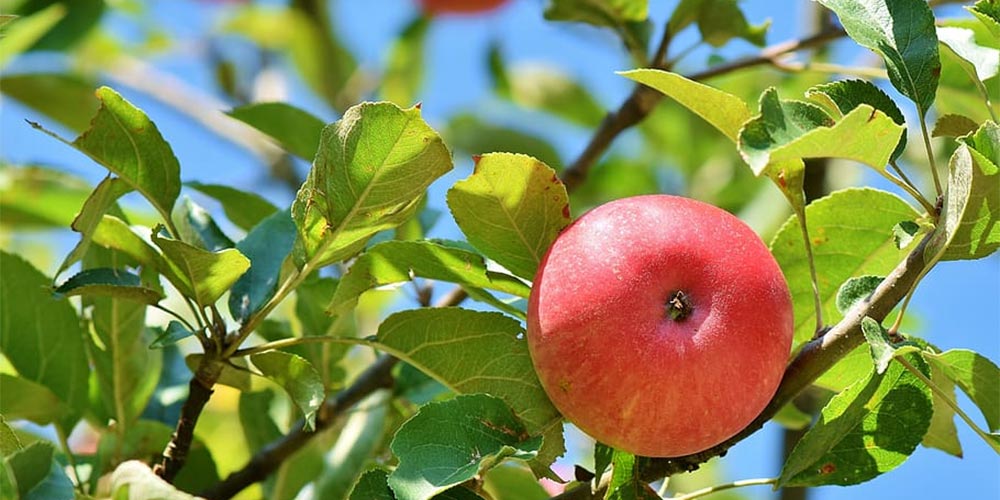
Over the years, I have experimented with growing various types of fruit trees in my British garden, seeking to find the most rewarding tree in terms of flavour, yield, and ease of cultivation. I’ve trialled everything from traditional apples and pears to more exotic specimens like figs and apricots. It’s been a delightful journey, one filled with delicious fruit and gardening wisdom. I owe much of my knowledge and success to the experts at CRJ Fruit Trees who have not only provided me with quality stock but also invaluable guidance throughout my gardening adventures.
After much consideration and comparison, I have finally settled on one particular fruit tree as the most rewarding: the humble plum tree.
Why the Plum Tree Stands Out
Hardy and Adaptable
Plum trees are known for their hardiness and adaptability. They can withstand the unpredictable British climate, thriving in both cold winters and milder autumns. Additionally, they are well-suited to a range of soil types, including heavy clay and sandy loam. This makes them an excellent choice for gardeners looking for a fruit tree that is not overly demanding in terms of specific growing conditions.
Prolific Yield
Plum trees are incredibly generous in their fruit production. Depending on the variety, a well-cared-for plum tree can produce hundreds of fruits each season, providing a bountiful harvest for your family and friends. This high yield also means that you can enjoy homemade plum preserves, pies, and other culinary delights throughout the year.
Compact Size
Unlike some fruit trees that require ample space to grow, plum trees have a relatively compact size, making them perfect for smaller gardens or even urban settings. Some varieties, such as the dwarf or patio plum trees, can even be grown in containers on balconies or patios, allowing those with limited space to enjoy the benefits of fruit tree cultivation.
Aesthetically Pleasing
In addition to their rewarding fruit production, plum trees are visually stunning. They produce a profusion of white or pink blossoms in spring, followed by lush green foliage and, of course, the jewel-like plums themselves. The tree’s attractive appearance makes it an excellent addition to any garden, whether you are looking to create an orchard or simply add a touch of beauty to your outdoor space.
Wide Variety of Plum Types
There are numerous plum varieties available, each with its unique characteristics, such as fruit size, colour, and flavour. This allows you to select the perfect plum tree for your taste preferences and garden requirements. Some popular varieties include the ‘Victoria’, renowned for its sweet, juicy fruits, and the ‘Opal’, valued for its early harvest and exceptional taste.
Easy Maintenance
Plum trees require minimal maintenance compared to other fruit trees. Pruning is generally straightforward, as they typically have an open, spreading growth habit that allows for easy access to the branches. Furthermore, they have fewer pest and disease issues than many other fruit trees, making them a relatively low-maintenance choice for your garden.
Pollination Partners
While some plum varieties are self-fertile and can produce fruit without the need for another tree to aid in pollination, many benefit from having a pollination partner nearby. This not only encourages more abundant fruit production but also provides an opportunity to grow multiple varieties, allowing you to enjoy a diverse selection of flavours and harvest times.
Health Benefits
Plums are packed with essential vitamins, minerals, and antioxidants that contribute to a healthy diet. They are a good source of vitamins A, C, and K, as well as potassium and dietary fibre. Regular consumption of plums can aid in digestion, boost the immune system, and help maintain healthy skin and vision.
Versatile Culinary Uses
The culinary applications of plums are vast, ranging from sweet to savoury dishes. They can be eaten fresh, baked into pies and crumbles, made into jams and chutneys, or even incorporated into sauces and stews. Their versatility in the kitchen makes them a highly rewarding fruit to grow, offering endless possibilities for delicious creations.
Community Connection
Growing plum trees can provide a sense of community as you share your harvest with friends, family, and neighbours. This can lead to the exchange of recipes, gardening tips, and even the opportunity to swap excess fruit for other homegrown produce. The connections forged through growing and sharing the fruits of your labour can be deeply rewarding and fulfilling.
Conclusion
In conclusion, after many years of growing various fruit trees in my British garden, I have found the plum tree to be the most rewarding in terms of flavour, yield, and ease of cultivation. Its hardiness, adaptability, prolific yield, compact size, and stunning appearance make it a standout choice for any gardener looking to enjoy the benefits of fruit tree cultivation.
The wide variety of plum types, easy maintenance, and health benefits further contribute to its rewarding nature. Its versatility in the kitchen and the opportunity for community connection only add to its appeal.
I wholeheartedly recommend the plum tree as a fantastic addition to any British garden, whether you are a seasoned gardener or just starting your fruit-growing journey. Once again, I’d like to express my gratitude to the experts at https://www.fruit-trees.com/ for their invaluable advice and assistance in helping me find the perfect fruit tree for my garden. The joy of picking and enjoying homegrown plums is an experience that I will cherish for years to come, and I hope that you, too, will discover the rewarding nature of growing plum trees in your garden.
